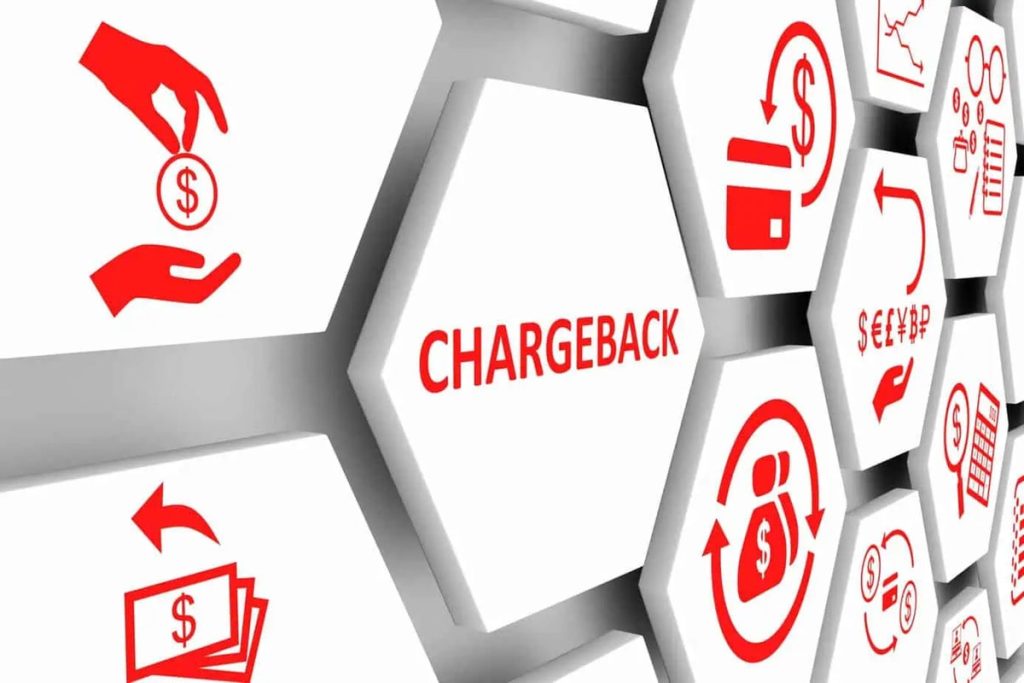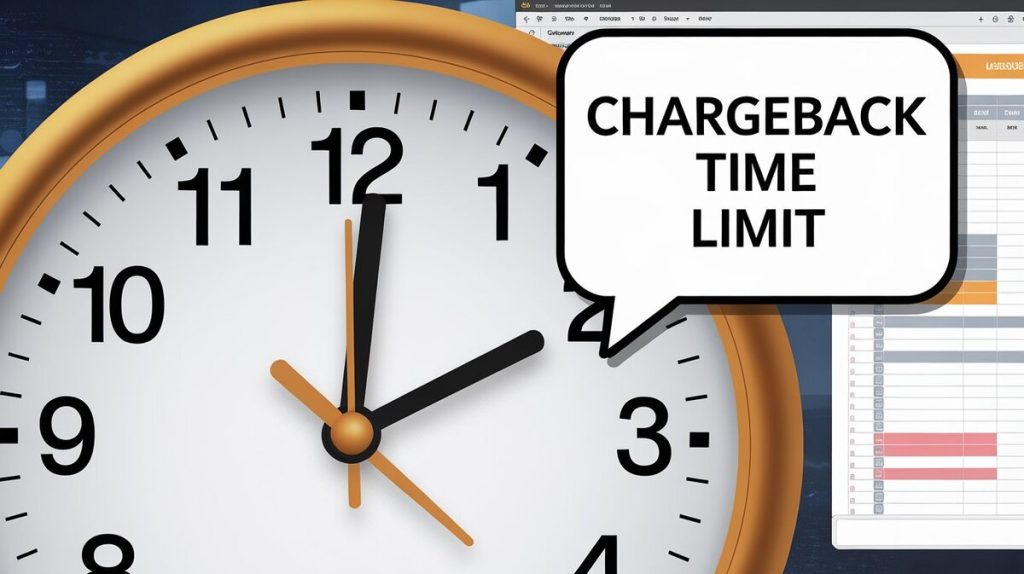Chargebacks are an essential part of payment processing, designed to protect consumers from unauthorized or fraudulent transactions. However, chargebacks can have significant negative impacts on merchants, resulting in lost revenue, penalties, and account risks. Understanding the specific chargeback time limits set by major card networks is crucial for both merchants and cardholders to handle disputes efficiently.
What Is a Chargeback?
A chargeback allows cardholders to dispute a transaction, prompting the bank to reverse the payment. While this system was created to protect consumers from fraud and errors, merchants often bear the costs when a chargeback occurs. To avoid unnecessary disputes, it’s critical for merchants to follow clear policies and promptly address customer concerns.
Chargeback Time Limits by Card Network
Chargeback time limits vary across card networks, and these limits are enforced strictly. They specify how long cardholders have to file a dispute and how long merchants have to respond once a chargeback is initiated.
Visa Chargeback Time Limits
For most chargebacks, Visa gives cardholders 120 days from the transaction or delivery date to file a dispute. Exceptions, such as disputes involving fraud or incorrect transaction data, must be filed within 75 days. Merchants are required to respond within 20 days once notified of the chargeback.
Mastercard Chargeback Time Limits
Mastercard’s standard time limit for cardholders is 120 days. However, certain disputes, such as those involving a missing account number, have a reduced limit of 45 days. Merchants usually have 45 days to respond, though some cases require responses in 18 days.
American Express Chargeback Time Limits
Cardholders using American Express have 120 days to file chargebacks. Merchants have 20 days to respond after notification. Unlike Visa and Mastercard, American Express is both the issuer and the network, meaning it handles the entire process itself.
Discover Chargeback Time Limits
Discover does not impose strict time limits but recommends disputes be filed within 120 days of the transaction date. Response times for merchants vary, but they are generally in line with those of other card networks.
Table 1: Chargeback Time Limits Across Major Card Networks
| Card Network | Cardholder Time Limit | Merchant Response Time |
|---|---|---|
| Visa | 120 days (most disputes) | 20 days |
| Mastercard | 120 days (most disputes) | 45 days (18 days for info) |
| American Express | 120 days | 20 days |
| Discover | No strict limit (120 recommended) | Varies |

Key Factors That Affect Chargeback Time Limits
Several factors can extend or shorten the standard timeframes for filing and responding to chargebacks:
- Card Network Policies: Different card networks have specific timelines. For instance, Mastercard has shortened limits for certain disputes (45 days), while Visa allows 120 days for most.
- Local Laws: In some regions, local laws may override network policies, providing consumers with additional time to dispute a charge.
- Bank-Specific Policies: Banks can extend the dispute window beyond the standard network policies. In certain cases, this can go up to 180 days.
- Special Circumstances: Events like natural disasters or widespread fraud may lead card networks to extend chargeback timeframes.
Understanding these variations is essential for both merchants and cardholders to act within the allowed time.
Merchant Response Deadlines: Why They Matter
Merchants face strict deadlines for responding to chargebacks. Missing a deadline typically results in automatic losses of the dispute. For merchants, failure to respond in time also means higher fees and an increased chargeback ratio.
- Visa: Merchants must respond within 20 days. If the chargeback escalates to arbitration, this window narrows to 10 days.
- Mastercard: Most responses are due within 45 days, though merchants may have as little as 18 days to respond to specific requests for additional information.
- American Express: Merchants must reply within 20 days of receiving a dispute notice.
- Discover: Response times vary, but generally merchants are expected to respond within 30-45 days.
Table 2: Merchant Response Deadlines Across Networks
| Card Network | Response Deadline (Days) | Exceptions/Notes |
|---|---|---|
| Visa | 20 | Arbitration: 10 days |
| Mastercard | 45 | Info requests: 18 days |
| American Express | 20 | Dispute escalation: 10 days |
| Discover | Varies (30-45) |
Merchants should work closely with their payment processors to ensure they receive timely notifications about disputes and have enough time to respond.
Filing a Chargeback: Steps for Cardholders
Cardholders can initiate a chargeback if they believe a transaction was unauthorized, fraudulent, or problematic (e.g., undelivered goods). Here’s how the process works:
- Attempt to Resolve with the Merchant: Cardholders must first try to resolve the issue with the merchant. This is a requirement by most card networks.
- Contact the Issuing Bank: Cardholders should file the dispute through their bank, providing transaction details and supporting documentation such as receipts or communication records.
- Bank Investigation: The bank investigates the claim, examining transaction data to determine if the dispute is valid.
- Resolution: The bank informs both the cardholder and the merchant of the decision, which may be appealed by either party.
Common Chargeback Reasons
- Fraud: Unauthorized transactions due to card theft or hacking.
- Service/Goods Issues: Goods not received or services not as described.
- Duplicate Transactions: The customer was charged multiple times for the same transaction.

Minimizing Chargeback Risks for Merchants
To avoid costly chargebacks, merchants can adopt specific practices aimed at preventing disputes. These include clear communication with customers, robust payment security measures, and consistent monitoring of chargeback notifications.
Actionable Tips for Merchants
- Have Transparent Policies: Publish clear refund, return, and cancellation policies to avoid confusion.
- Offer Quick Customer Support: Many disputes can be prevented by resolving issues before they escalate into chargebacks.
- Use Secure Payment Systems: Fraud is a leading cause of chargebacks. Implementing secure payment solutions such as tokenization, multi-factor authentication, and AVS (Address Verification Service) can minimize the risk of fraudulent charges.
For merchants seeking more robust chargeback prevention, Merchanto.org, an official partner of Visa and Mastercard, offers chargeback management tools. Learn more about their services at Merchanto.org.
Understanding Chargeback Fees and Financial Impact
Chargebacks carry direct financial consequences for merchants. Besides losing the sale, merchants also face chargeback fees ranging from $15 to $100 per incident, depending on the payment processor. Merchants with a high chargeback ratio (over 1%) may face additional penalties, including higher fees or the loss of their merchant account.
Table 3: Chargeback Fees Across Major Payment Processors
| Payment Processor | Fee Per Chargeback | Excessive Chargeback Ratio |
|---|---|---|
| Stripe | $15 – $25 | 1% |
| Braintree | $15 – $30 | 1.5% |
| Checkout.com | $20 – $50 | 1.5% |
| PayPal | $20 | 1% |
Note: Processors may charge higher fees if merchants exceed a certain threshold of chargebacks, leading to fines or increased reserves.
Conclusion: The Importance of Managing Chargeback Time Limits
Understanding chargeback time limits and the associated rules is essential for both cardholders and merchants. Cardholders must file disputes within the allowed timeframe, and merchants must respond quickly to avoid penalties. Failure to comply can result in lost disputes, increased fees, and potential account termination.
For merchants, the key to reducing chargeback risk lies in proactive management. By establishing clear customer service policies and leveraging secure payment methods, they can prevent many disputes from occurring.
This structured approach ensures that all parties are aware of the strict time limits and can take the necessary steps to manage disputes effectively, minimizing losses and safeguarding business continuity.



